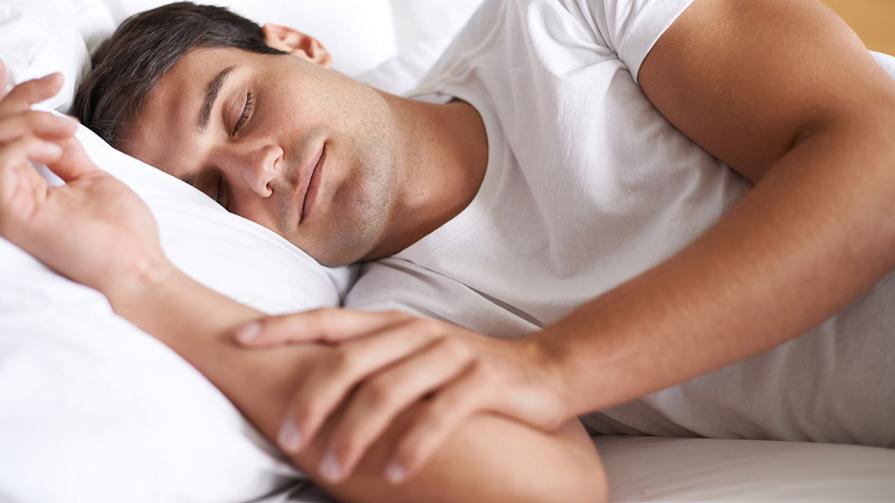Though studies cannot pinpoint at an exact answer but be considering an average human, he or she needs 8 hours of sleep every night. However, this can vary for people depending on their age. Moreover, it is important to pay attention to one’s individual needs, as in how one feels after different amounts of sleep. Is the personal health, happy, productive and active after 7 hours of sleep? Or he or she needs 9 hours of sleep to be brisk the next entire day? Are there any health issues?
Contents
About
Sleep requirements depend on three vital factors, which are as follows:
- Lifestyle
- Age
- Health
Therefore, to determine how much sleep do you need, it is important to evaluate where you belong on the sleep spectrum and what kind of lifestyle you follow. To know more about it, read on.
Before I answer your question — how much sleep do I need – it is important to understand sleep first.
Understanding Sleep Better
Sleep isn’t exactly the time when the brain and body shut off. When a person rests, his or her brain is still busy, overseeing a wide range of biological maintenance, which keeps the body running in the best condition, preparing for the day ahead. One may not realize this but yes, his or her brain is still doing things inside. Without adequate hours of proper sleep, one will not be able to carry out the day-to-day activities smoothly.
According to studies, different age groups require different sleep duration. So, it all comes down to an individual’s needs. Just like other characteristics, a person is born with, the sleep duration required for him or her to function better might be different from another person, who is of same gender and age. Let us take 2 persons here. I will name them X and Y. Consider both X and Y to be of same gender and age. This doesn’t mean their sleep requirements are same. Certainly not! Suppose X is active and happy after 7 hours of sleep, Y might not experience the same. Y may need 9 hours of sleep to lead a happy and productive life. So, research says that there is “no exact number” to how much sleep is enough.
To explain more about how much sleep do adults need, two vital things are considered:
- Basal sleep requirement – amount of sleep a body needs on a daily basis for optimal performance
- Sleep debt– accumulated sleep, which is lost due to sickness, staying awake or poor sleeping schedules
According to few studies, a healthy adult has a basal sleep of 7 – 8 hours each night. However, things get complicated when there is an interaction between basal requirement and sleep debt. I will explain this. A person may meet his or her basal sleep requirements on a night or few nights in a row and still have an unresolved sleep debt, which can make him or her less alert and sleepier at times. Such are the times when the person feels overwhelmingly sleepy and goes to bed sooner. Though researchers are still studying deep about basal sleep and sleep debt, one particular thing studies have proved that fewer amounts of sleep aren’t good for health.
Less Amounts of Sleep (6 hours or less) Are Often Associated With the Below:
- It inhibits one’s productivity
- Inability to remember things
- Serious health consequences
- Obesity
- Increases the risk of drowsy driving
- Increases the chances of diabetes, blood pressure and heart problems
- Leads to depression
- Substance abuse
- Negative psychological behaviors
- Inability to concentrate
Excess Amounts of Sleep (9 hours or more) Are Often Associated With the Below:
- Increased morbidity (accidents, illness)
- Mortality (death)
- Depression
- Low socioeconomic status
- Health problems
According to “National Institute of Health”, an average adult sleeps less than 7 hours every night. In current fast-paced lifestyle, 6 – 7 hours sleep might sound good. However, in reality, it is the way to chronic sleep deprivation. There is a huge difference between the amount of sleep a person gets and the amount he or she needs to function smoothly. Just because a person is able to operate better on 7 hours sleep, it does not mean that he or she would do ultimately when few extra hours are spent in bed. Even excess sleep calls for various health issues.

While sleep needs differ slightly from one individual to the other, healthy adults require between 7 ½ – 9 hours of sleep every night to function better the next day. Now, considering kids and teens, they need more sleep when compared to adults. Regardless of the belief that a person’s sleep requirement decreases with age, an older person still needs at least 7 ½ – 8 hours of sleep. Since aged people have troubles sleeping for a long time at nights, daytime naps might help them reach their sleep requirement.
So, How Much Sleep Do I Need Actually?
Here’s A Researched Answer:
If you were thinking 6 hours of sleep is what a human required, then think over because according to scientists at California University, some people have genes that enable them to perform well even with just 6 hours sleep a night. Unfortunately, this gene is extremely rare (only 3% population). For rest 97%, 6 hours aren’t adequate.
Average Sleep Requirements By Age
- 12 – 18 hours of sleep for a newborn to two months old
- 14 – 15 hours of sleep for three months to one-year-old
- 12 – 14 hours of sleep for one to three years old
- 11 – 13 hours of sleep for three to five years old
- 10 – 11 hours of sleep for five to twelve years old
- 5 – 10 hours of sleep for twelve to eighteen years old
- 5 – 9 hours of sleep for adults over eighteen years
What You Should Do To Improve Sleep?
For a healthy sleep and better lifestyle, start by evaluating your individual habits and needs. Look the way you respond to different durations of sleep. Pay more attention to your energy, health, and mood after a poor night’s sleep vs. a good one. If you feel that you aren’t getting adequate healthy sleep, which you are supposed to, then consider changing your everyday sleeping habits. If still, things don’t work for you, it is better to consult your doctor or a sleep specialist.
Here are few things you can do to get a healthy sleep:
- Establish constant sleep and wake up routines, even if it is weekend
- Have a regular and relaxing bedtime schedule like a hot bath / listening to pleasant music (do this an hour before going to bed)
- Make yourself comfortable
- Make sure that your mattress and pillows are comfortable enough to make you have a good sleep
- Ensure that your room is quiet, cool, dark and comfortable
- Keep all your gadgets away
- Never watch TV during your bedtime
- Finish your dinner at least two hours prior going to bed
- Exercise and meditate everyday
- Avoid alcohol and caffeine
- Quit smoking
- Eat healthy
- Avoid junk and oily foods
Facts And Myths Regarding Sleep
There are many myths about sleep, which I want to discuss here.
- Sleeping An Hour Less A Night Will Not Affect Your Day-To-Day Activities
You might not be noticeable sleepy at daytime but losing just 1-hour sleep a night can greatly affect your thinking and concentrating abilities. Doing this a day or two, when you have to reach early to the office for a meeting or a project presentation sounds okay but when done on a regular basis, it dramatically lowers your energy levels. Moreover, you will start having cardiovascular problems and your immunity to fight different infections potentially decreases as well.
- Body Can Easily Adjust To Different Sleeping Schedules
Few people can rest their biological clock, however only by fittingly timed cues – one to two hours a day at best. As a result, it takes over 7 days to adjust.
- Additional Few Hours Of Sleep Cures Problems With Excess Daytime Fatigue
“Anything in excess is good for nothing”. Same applies to your sleep too. Yes, of course, the quantity of sleep you get a night is important but at the same time, quality can’t be overlooked. There are people, who spend 8 to 9 hours of sleep a night but still feel tired when they wake up. This is because their sleeping quality is poor.
- You Can Compensate The Lost Sleep Of Your Weekdays By Sleeping A Lot On Weekends
This is certainly not true. Making up for the lost sleep on weekends greatly affects the sleep-wake cycle. It becomes hard for you to get up early on a Monday morning.
Different Stages Of Sleep
Not all sleep is created the same. Sleep unfurls in a series of recurring sleep stages, which are far different from what is happening under the surface. Right from dreaming sleep to deep sleep, they are vital for both mind and body. Every sleep stage has its own role. It helps in preparing the day ahead.
Sleep can be classified into two main types, which are as follows:
- REM (Rapid Eye Movement) sleep
- NREM (Non Rapid Eye Movement) sleep

REM is when you are actively dreaming of sleep. Your eyes move back and forth at this stage. Hence the name, Rapid Eye Movement. You enter into REM sleep after 70 – 90 minutes of sleep. This is when you start dreaming. Your eyes move fast, heart rate increases, blood pressure goes up and breathing shallows. At this stage, your leg and arm muscles are paralyzed.
NREM can be further classified into 3 sleep stages, each deeper than the previous.
- Stage 1 (Sleep transition): This lasts for only 5 minutes. At this time, your eyes move gradually below the eyelids, your muscle activity drops down and you easily wake up.
- Stage 2 (Light Sleep): This lasts between 10 and 25 minutes. At this phase, eye movements stop, heartbeat slows down and body temperature reduces.
- Stage 3 (Deep Sleep): You can’t be awakened that easily at this stage. Even if you wake up, you cannot adjust yourself immediately. You feel disoriented and groggy for few minutes. This is the deepest sleep stage and your brain signals are too slow.
Signs That You Are Lacking Sleep
If you are someone, who is getting less than 8 hours of sleep a night, chances are that you are sleep deprived. Probably, you have no idea as to how much this is affecting you. If you have made it a habit to skimp on your sleep, you might not remember what it exactly feels like to be fully alert and wide-awake. Now, the question is how to tell if you are sleep deprived? Well, if you are feeling sleepy during your meetings, dozing right after your dinner or struggling through your afternoon slump, then know that you are sleep deprived. Other things are listed below.
You Are Sleep Deprived:
- If you feel sluggish during afternoon
- If you have tough time waking up in the morning
- If you need alarm to get up
- If you reply on snooze button
- If you are drowsy after a heavy meal or while driving
- If you want naps in the daytime
- If you fall asleep within 5 minutes
- If you fall asleep when watching TV
- If you feel like sleeping more on weekends
Effects Of Lack Of Sleep
If you are assuming that losing little sleep a night isn’t a big deal, then think over because it has wide negative effects on your overall health. Some major ones include:
- Lack of coordination
- Irritability and moodiness
- Inability to judge
- Lethargy and fatigue
- Stress
- Lack of motivation
- Infections and colds happening frequently
- Weight gain
- Depression
- Reduced immunity
- Increased risk of heart diseases and diabetes
- Memory problems
- Lack of concentration
- Difficulties in making decisions
- Accidents
- Impaired motor skills
How Sleep Deprivation Can Make You Obese?
I don’t know if you have had noticed this but you will crave for sugary foods when you are short on sleep. The reason is that lack of proper sleep has direct connection to weight gain and overeating. Two hormones in your body regulate the feeling of fullness and hunger, which are:
- Ghrelin – stimulates your appetite
- Leptin – sends signals to the brain that you are full
When you do not get the sleep you are supposed to, the ghrelin hormone levels rise. Thereby, stimulating the appetite in a way to make you want more food. When levels of leptin drop down, you feel as if you are not satisfied. You still want to eat more.
 Power Tower Reviews Best fitness equipment for home use, workout program
Power Tower Reviews Best fitness equipment for home use, workout program



